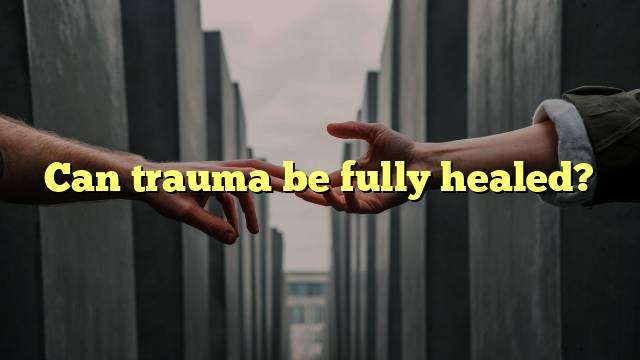Treating the Degrees of Trauma
Trauma is a deep-seated injury that can occur in any form – emotional, mental, physical, or sexual. It can be the result of a single event, or it can be the result of a repeated cycle of events. No matter its source, trauma can have a powerful and lasting impact on an individual.
The Impact of Trauma
When we experience or witness a traumatic event, our body releases hormones such as adrenaline and cortisol. While these hormones can help us to react in the moment, they can also create long-term physical and psychological effects. Symptoms of trauma can include anxiety, depression, fear, guilt, anger, and physical ailments such as headaches and stomachaches.
Healing Trauma
The good news is that no matter the degree of trauma, it is possible to heal. It is important to recognize that trauma is very individualized and the healing process will look different for everyone. Here are some tips for getting started on the journey to healing:
- Seek Professional Help – A mental health professional can provide the support and guidance needed to begin the healing process. Working with an experienced therapist can be immensely helpful in processing painful emotions, challenging negative thinking patterns, and developing healthy coping skills.
- Reach Out for Support – It is essential to have a support system in place during the healing process. Friends, family members, and other people who have experienced similar traumas can provide a safe space to talk, share experiences, and offer support.
- Practice Self-Care – Self-care is a vital part of the healing process. It is important to take time each day to do something that brings joy and relaxation. This can include activities such as yoga, meditation, journaling, reading, and spending time in nature.
- Create a Positive Environment – It can be helpful to create an environment that is conducive to healing. This may mean limiting exposure to negative people or situations, avoiding triggers, and surrounding yourself with positive influences.
- Focus on the Present – While it is important to acknowledge and process the past, it is also important to focus on the present. This means living in the moment, being mindful of your thoughts and feelings, and focusing on the positive aspects of life.
- Find Meaning and Purpose – Finding meaning and purpose in life can be a powerful tool for healing. This can come from connecting with others, engaging in meaningful activities, and pursuing a cause that you are passionate about.
The Benefits of Healing
The journey to healing from trauma can be long and difficult, but worth it in the end. The benefits of healing include improved mental and physical health, increased self-confidence, and a greater sense of inner peace and joy. With the right support and dedication, it is possible to move beyond trauma and live a life of fulfillment and joy.
Key Takeaways
At its core, trauma is an individualized experience that can take many forms. It is possible to heal from any degree of trauma, but it is a process that involves time, dedication, and support. Taking steps to seek professional help, reach out for support, practice self-care, create a positive environment, focus on the present, and find meaning and purpose can all be important tools for healing. In the end, the journey to healing is worth the effort, as it can lead to improved mental and physical health and a greater sense of inner peace and joy.



